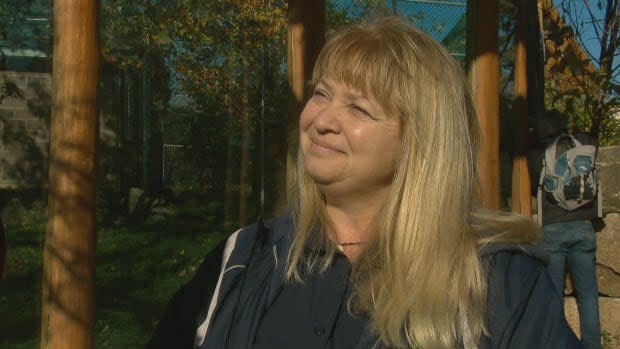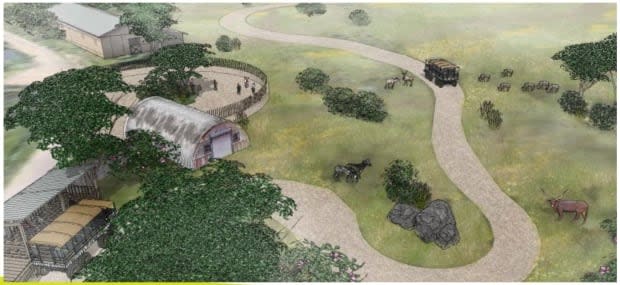Penguins, giraffes, wild dogs and hogs eyed for Moncton zoo expansion

Moncton will consider a multi-year, multimillion-dollar African safari-themed expansion of the Magnetic Hill Zoo.
A master plan and feasibility study of a three-phase expansion were presented to Moncton councillors during a committee meeting Monday.
Councillors directed staff to further examine the idea through an economic impact study, go ahead with preliminary design work and bring detailed cost estimates to the city's 2022 budget deliberations this fall.
The expansion would expand or renovate existing animal exhibits and add new ones for species such as penguins.
"Penguins are a huge draw no matter where you go, and this would be no different," said Andrew Jordan, a consultant with WDM Architects, who was part of developing the expansion master plan.

The plan would cost millions to implement, but consultant Zachary Winfield with Zoo Advisors told councillors they believe it would increase visits to the zoo and therefore spending at local hotels, restaurants and other businesses.
Prior to COVID-19, the zoo recorded around 180,000 visitors yearly.
Winfield said they conservatively estimated attendance would increase to 230,000 or, optimistically, to 243,000 if the expansion is implemented.
"So this is really a big, meaningful growth strategy for the zoo," Winfield said.
The expansion would also include more indoor habitats or covered viewing areas to help extend how long the zoo can be open in the spring and fall.
Jill Marvin, the director of the zoo, said some animals sensitive to colder temperatures can't stay outside on display, so it limits the time the zoo can be open. More enclosed habitats — or covered viewing spaces — will help the zoo stay open longer.

The cost of the first phase, with a targeted completion of 2024, is estimated to cost $7.6 million. Of that, $4.3 million would be for spending on existing components of the zoo and $3.3 million would be for new features.
The spending on existing components would include rebuilding the lemur exhibit and providing more indoor or covered viewing areas. That would extend the time the zoo can be open in the spring and fall.
New features would include a penguin exhibit building with areas to be able to watch penguins swimming.
The second phase is estimated to cost $11.2 million and be completed by 2027.
It would feature a "safari adventure" with a vehicle that would drive through a large habitat with eland, zebras, kudu and other hoofed animals.

The second phase would also build new otter and flamingo exhibits, a rivers-to-oceans themed building, among other changes.
A third phase wasn't costed in the master plan and doesn't have a timeline. It would feature an events building, exhibits for giraffes, African wild dogs, Colobus monkeys and Red River hogs.
The expansion would require adding 6.5 full-time-equivalent staff members by 2029.
While operations costs would rise, Winfield said the expected increase in attendance could help offset those costs.
Before the pandemic the zoo recorded a deficit between $500,000 and $1 million yearly, a staff report to council states.
Winfield said the feasibility study suggests the expansion would see the deficit grow to an average of $1.05 to $1.19 million yearly.
The study began in 2019. It was supposed to be presented to council in March 2020, but that was halted by the pandemic.
Councillors expressed support for the ideas and voted in favour of staff continuing to develop plans. Staff will also look into whether the project can receive provincial and federal funding.
"I'm happy to see this because I think it is an asset that New Brunswick, the Atlantic provinces have," Deputy Mayor Charles Léger said. "I think it's time we put some investment in."

